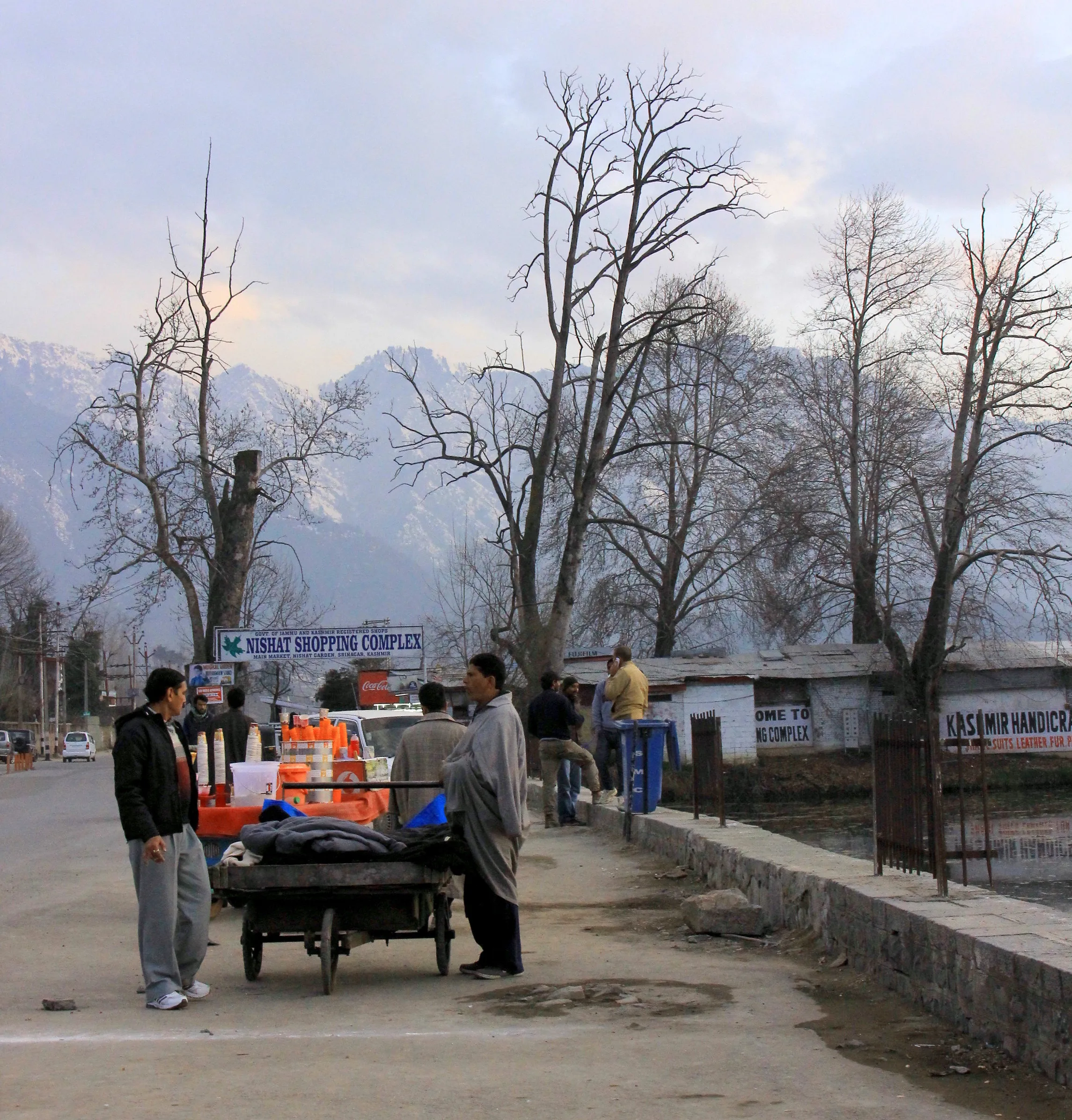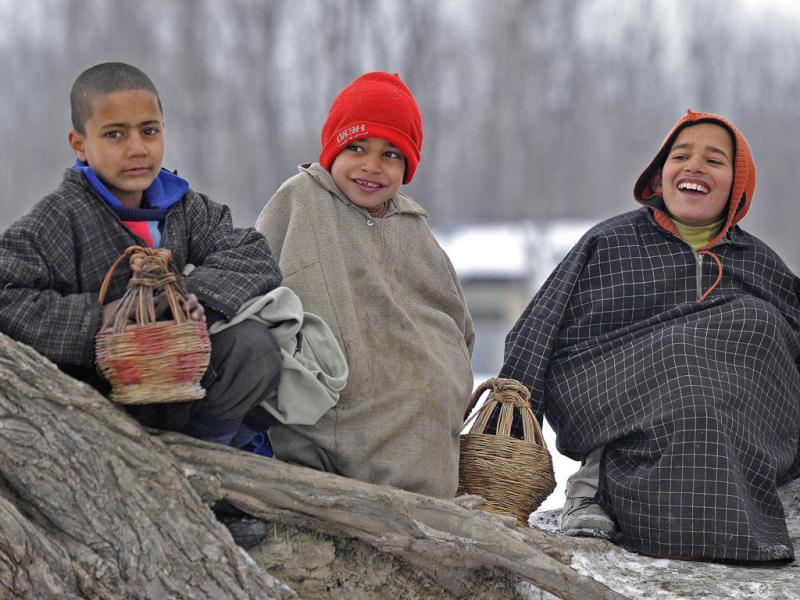.webp)
Ehsan Fazili/Srinagar
“Winter season in Kashmir is a culture and for this reason, the lifestyle of Kashmiris is winter-oriented”, says Naeem Akhtar, a former minister and a senior leader of the Peoples Democratic Party (PDP) of Jammu and Kashmir. Walking down memory lane to the days of long winter breaks from school and college, Naeem Akhtar says as a child, he enjoyed winter breaks and during this learned the art of living in harsh winter along with other children of his native village Garoora located in north Kashmir.
Winter Break Nostalgia
Naeem Akhtar’s father Syed Mohammad Sayeed Andrabi was not only a well-known and respected teacher. He was also an activist who popularized education among the locals.
Naeem went to the school in his native village Garoora, Bandipore district, and, cleared his 10th from the Government High School, Nadihal in 1966.
As was a common social practice among Kashmiris those days, he moved to Srinagar to live with his maternal grandparents after getting admission to the college.
 A Srinagar street during winter
A Srinagar street during winter
There his bond with his grandfather Mir Ghulam Rasool Nazki, the legendary poet of Kashmir and broadcaster, became even stronger.
He graduated in Science from Sri Pratap College and qualified the Jammu and Kashmir Administrative Services (JKAS) examination to become a bureaucrat at the age of 20 years. He served the State government in various positions and retired voluntarily in 2009.
He joined the PDP founded by Mufti Mohammad Saeed where he was elected Member of State Legislative Council in 2013. He also served as a cabinet minister in the Mufti Mohammad Sayeed cabinet and later in the Mehbooba Mufti's ministry.
Describing Kashmir winter as a “wonderful time” of his childhood days, Naeem Akhtar told Awaz-the Voice that the season is quite different from what people experience in other parts of the country. “For most of the school children in villages, the season beginning with harvesting of crops up to the onset of winter was a wonderful season”.
“In the run-up to winter vacations in the villages, it was necessary to use “bukhari” (cylindrical fire chamber) in government offices and schools for heating classrooms by burning firewood”, he recalled.
"Students were asked to donate firewood for feeding bukhari to keep the classrooms warm in the shivering cold. “I remember the students getting a log each in their hands from their homes…..that in itself is nostalgic”, Naeem Akhtar said.
 Kashmiri Children wearing Pheren and using kangri to keep their body warm
Kashmiri Children wearing Pheren and using kangri to keep their body warm
The onset of winter was a merry time for the children as “everyone in would get either a new pheran or a pair of warm clothing”, he said. “Most of the poor students from villages would at least get a new or old pheran ... .and the use of Kangri for warmth. It was kept inside the long robe and would lead to fire burns on thighs or belly”, he recalled.
The fire burns (Naare Taet) was like an epidemic due to the use of Kangri (personal mud and wicker bowl with a handle to keep the body warm), he said.
"My father was a teacher and our home was a spiritual seat, and the elders were known as Peer. It earned a lot of respect to us among the people of the village and around”, Naeem Akhtar says.
However, he says, this exceptional practice in Kashmir has become a rarity over the decades. “My father was not only a teacher but an educational activist, and therefore, by the beginning of winter vacation, the children would shift from school to our house (for free coaching)”.
It was “a kind of Gurukul” and the students helped us in chores. They would also take lessons, memorise and study the Quran. It was a huge activity that kept everybody engaged and turned our home into a lively place."
“I also taught students of classes two or three years junior to me….”.
All the family members would get engaged in storing vegetables duly processed for use during the cold season. All this made winters different as compared to the present times”, Naeem Akhtar said.
He recalled the processing of mounds of homegrown vegetables like Knol Khol, Collard (Haakh), and radish. These were chopped, dehydrated naturally and then applied with spices and mustard oil, for filling up in cylindrical earthen pots.
Garlands of sundried vegetables on sale in Srinagar
“There used to be enough stock of anchar (pickle) in every home to suffice in the winter for use with rice-daal-vegetable food”. The preparation was made usually in huge quantities by an expert. I remember Abdul Sattar Ganai, who lived in a neighbouring village, being much in demand for anchar making for the season."
Besides, “women in our homes generally kept sundried vegetables - which were dried throughout summer and autumn - ready for the winter. The village houses would have garlands of vegetables, red chilies, etc. hanging from the outer walls and around the windows of houses. Those foods along with the home-grown honey, Gulqand and Khambeer from rose and other flowers were tasty and had medicinal values for curing usual health issues”, he recalled.
“I absorbed the village life for many years in my childhood in the company of a dear uncle (Peer Ziauddin), where I spent many days during vacations. His house was located about 12 km away from my house.”
“Life in Srinagar was different as there were fewer happenings in the city as compared to the village life. Firewood came from Government Ration Depots, Tanga (horsecart) was the only means of transport and often it would get stuck in the muddy roads and lanes. Roads connecting the city with other areas would get snapped due to snowfall and for weeks there would be no communication between Srinagar city and the villages.
“Everybody in the villages was self-sufficient and people would not move around much for the supplies, while in Srinagar winters were harsher. I had a great company of maternal uncles, all (seven) of them living together with parents… the youngsters of around my age, with whom I would sometimes go to the cinema. There were usually few other cousins staying along for their studies in the colleges.
“The college activities would come to a halt ahead of the winter vacations to prepare for the annual examinations”, he recalled.
ALSO READ: Najma Hepthullah remembers climbing fruit trees and fishing in pond
The annual examinations in schools and colleges were held in March up to 1967, followed by a long break waiting for the results till mid-summer season. Later when the annual examination schedule was shifted to the November session, the winter vacations were coupled with the wait for the results, providing more academic activities. The examination schedule has been reverted to the March session since last year, after about 55 years.
